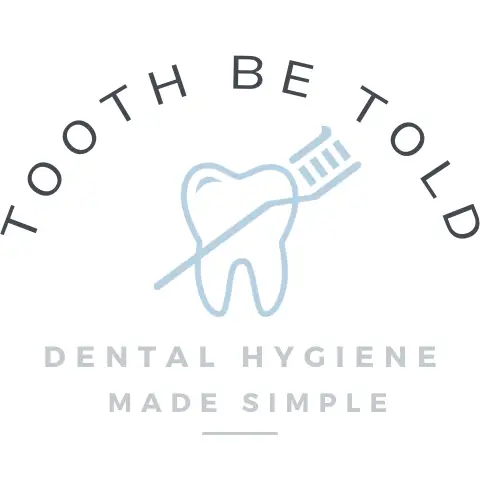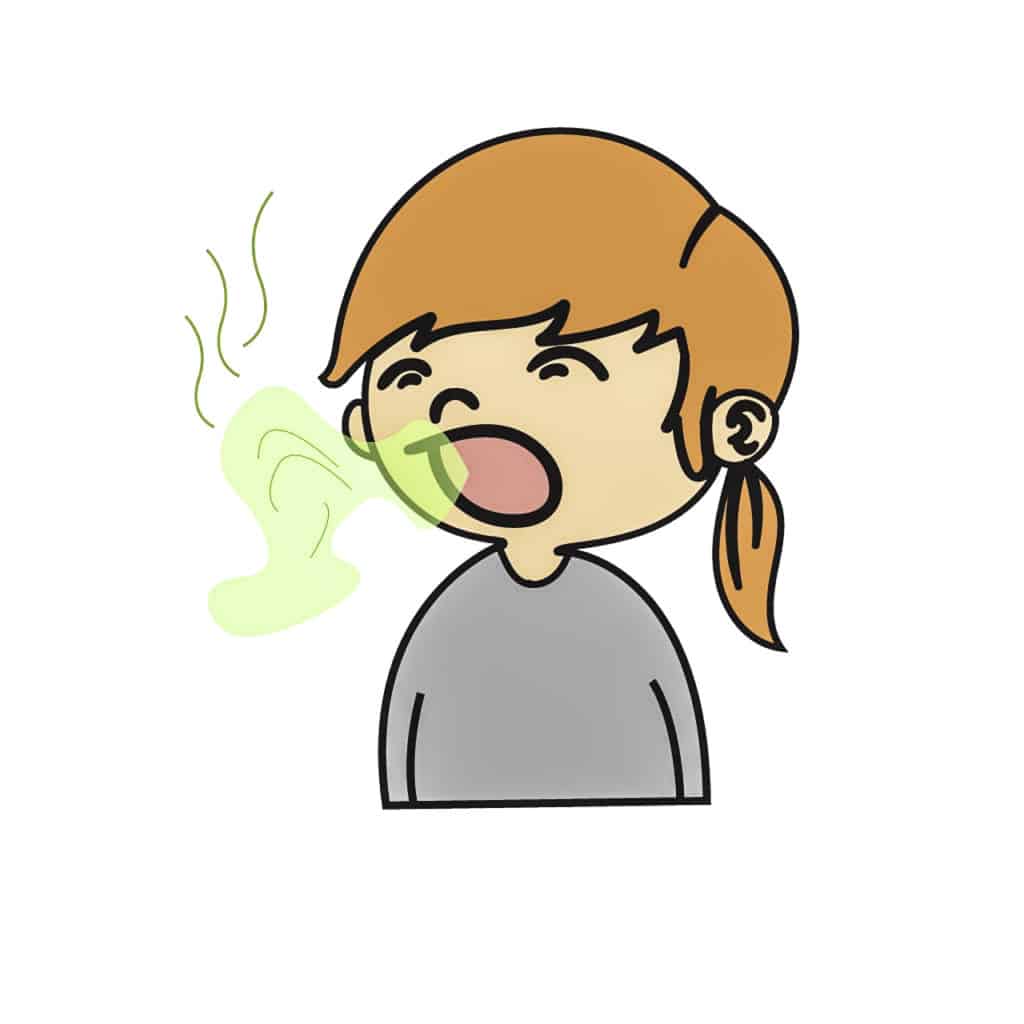
Sometimes my patients ask some pretty personal questions such as, “does my breath stink?”. Not that I deliberately smell their breath, but the reality of working in people’s mouths is that I get exposed to all different odours, some good, but mostly bad. How do my patients make their breath better, and what causes their breath to smell bad. Can a loose tooth cause bad breath?
A loose tooth can cause bad breath or a foul smell for a few reasons. Loose baby teeth, gum disease, injury/trauma, infection, orthodontics, pregnancy and osteoporosis are all contributors to loose teeth and could cause stinky breath. Poor oral hygiene practices can also contribute to bad breath.
Foul odours (from the mouth) can occur for many different reasons, and a loose tooth can be one of them. But why does a loose tooth cause halitosis (bad breath)? In this post, I go over why teeth can become loose, why they cause bad breath and other reasons for bad breath. I also touch on how to improve your breath and how to strengthen loose teeth!
Dental professionals need to know why the tooth is loose
Teeth become loose for many different reasons, and depending on the cause of the loose teeth, the odour can vary.
I’m guessing because you are here that you are looking for the source of your bad breath, and also how to make it better.
All the reasons why teeth can become loose are below!
Primary teeth exfoliating (losing baby teeth)
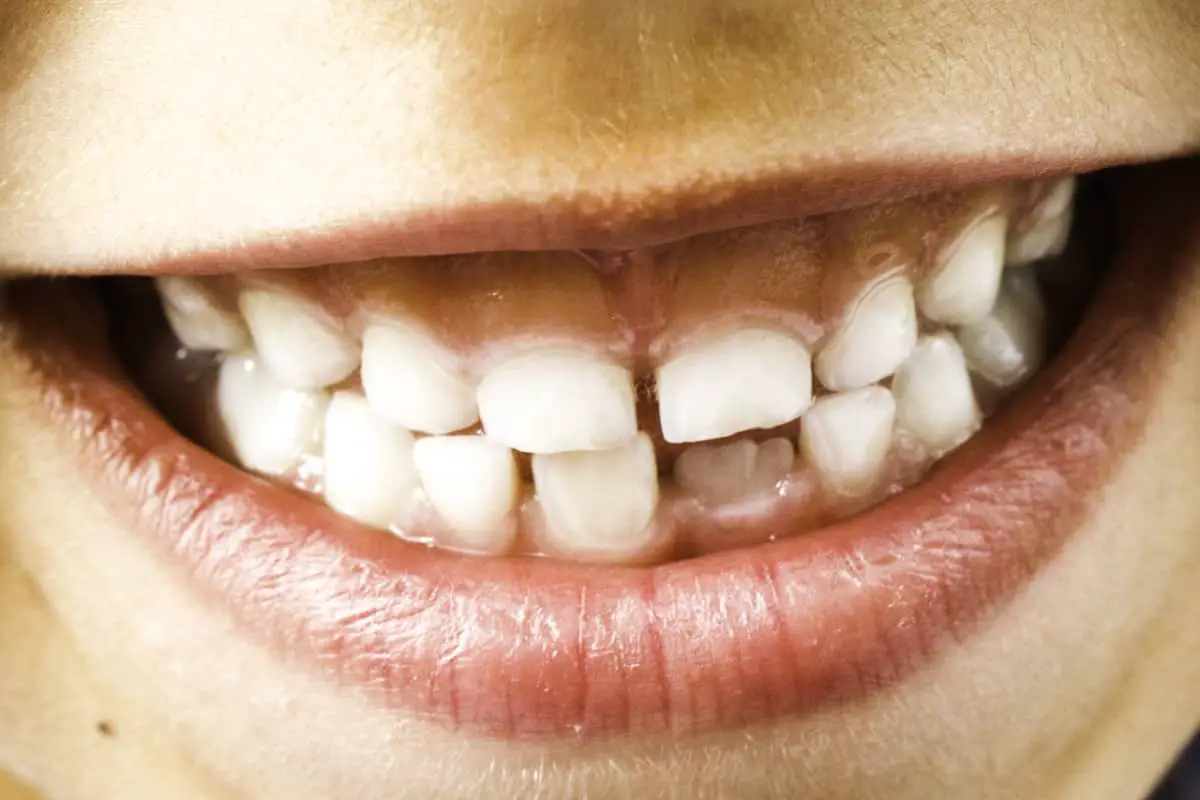
This is not something that I would worry about, but when a child is in the process of losing a primary tooth, there will be a gap between the baby tooth and the gum tissue. This gap forms as the roots of the primary teeth resorb (dissolve), allowing the tooth to fall out and making room for the adult tooth to come in.
In that gap between the tooth and the gums, food and bacteria can get trapped and cause bad breath.
It’s not comfortable to lose baby teeth and have new adult ones push up through the gums. Children may avoid cleaning the area when brushing and flossing because of how uncomfortable it can be.
When the loose tooth is avoided when brushing and flossing, there is an excess of bacteria and food particles. The bacteria will continue to multiply, and the food will break down, and it can all get quite smelly in there.
Advanced/severe Gum disease
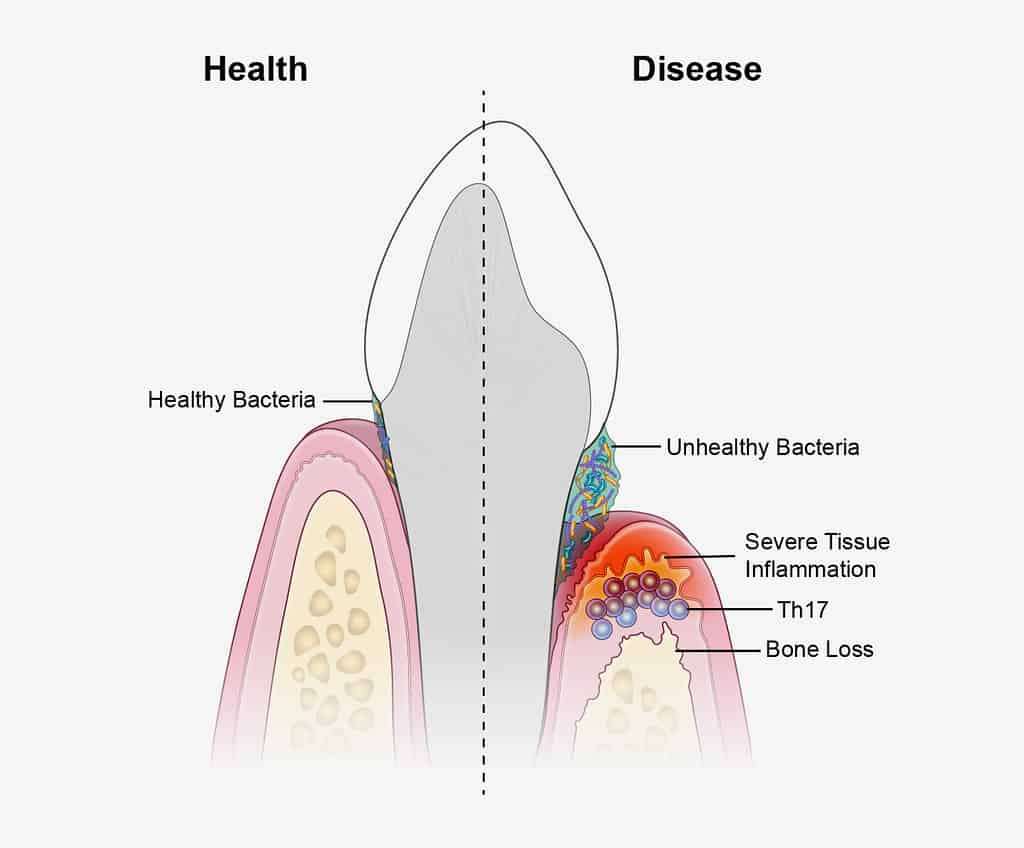
Gum disease (specifically periodontal disease) involves both the gum tissue and the bone that surrounds and supports the teeth. The periodontal disease breaks down the bone and gum tissue around the teeth, and if it’s more severe, it can result in loose teeth and tooth loss. It’s non-reversible, and once you have it, you have it for life.
Imagine a fence post that is in the ground, surrounded by cement and dirt to keep it upright and secure. What happens when all the cement and dirt are washed away around it? The fence post will fail to stand upright if too much of the supporting cement and dirt has been washed away.
Like I said above, gum disease involves the loss of structure around the teeth, including the bone, the ligaments holding the teeth in, and the gum tissue. As the tissues start to break down, there is a very distinct smell that occurs. Us in the dental world, call it perio breath.
Perio breath odour comes from the higher numbers of bacteria that are releasing toxins into the tissues supporting the teeth as well as the bacteria breaking down proteins and releasing volatile sulphur compounds. The tissue decaying contributes to the smell as well.
How injury/trauma causes bad breath
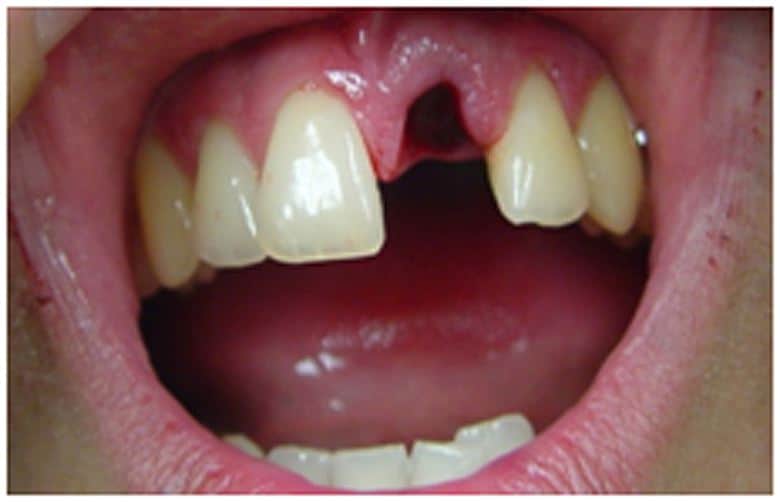
When a tooth is knocked in a certain way from a blow to the head, it can make the tooth loose, and can even knock it out. This can happen from sports/activities where contact with another person is possible.
Injury and trauma can be reduced by wearing a protective sports guard/mouthguard during sports and activities. Below you can find the # of sports that you should be wearing a sports guard, and some will surprise you!
Read now: What Sports Should You Be Wearing a Mouth Guard For?
If a tooth is avulsed (comes out completely), it may be possible to re-insert the tooth and have it survive. During this time of healing, there may be a smell that occurs as the tissues start to heal.
Abcessed tooth
If you have an infection at the base of the roots of the teeth, that is leaking pus into the mouth, it could definitely be a contributor to bad breath!
You may taste a foul bitter taste at times because the pus is draining into your mouth. The pus accumulates at the base of the tooth, and when there is not enough room, the pus will leak out into the mouth.
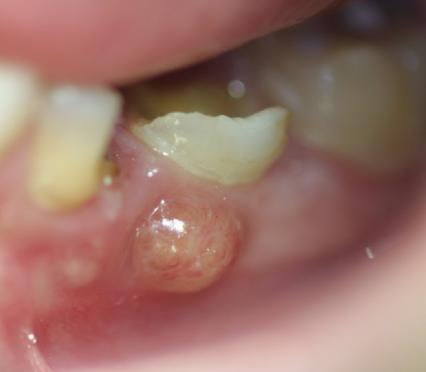
Also, a telltale sign of an abscess is an area on the gums that looks like a pimple. And when the tissue is pressed around the pimple, you will probably have some pus that comes out.
If you see this on your gums, you must be seen immediately. Dental infections are no joke and can become serious very quickly.
Not to mention, the longer the abscess is present, the more damage it can do. The infection will start to break down even more bone around the infected tooth.
I had a patient in my chair a couple of weeks ago, and when I was cleaning his bottom front teeth I realized they were loose, on a more thorough investigation and taking an x-ray, he had an abscess on the two bottom front teeth. Unfortunately, he will lose those teeth and will have to get a denture/bridge or implant.
Orthodontics
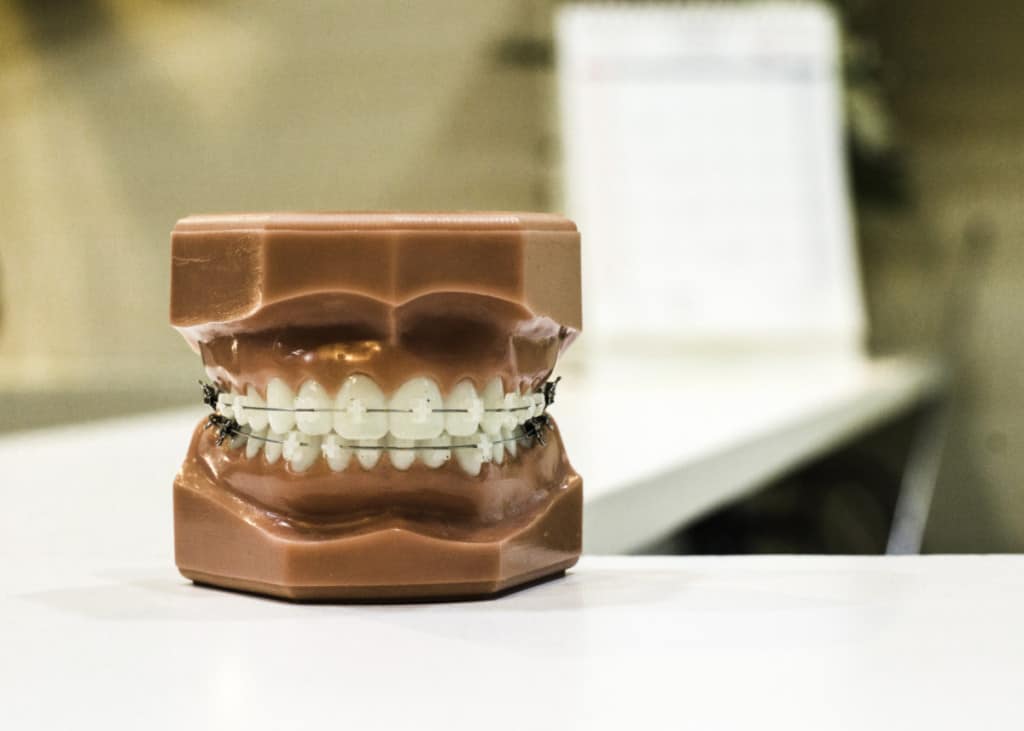
Moving teeth can make them loose, however, this is temporary. The teeth move in the jaw bone by breaking down one side of the bone, to make room for where the tooth is going. New bone will eventually fill the place where the tooth has moved from.
You may not feel the loose teeth because the braces/trays hold everything nice and tightly together. But when you get your wires off/elastics off or take out your trays, you may feel that your teeth are not as stable as they could be. You may feel some movement when you bite your teeth together or are eating something.
Sometimes the smell is more associated with poor oral hygiene, as it is more difficult to maintain good oral hygiene during orthodontic treatment and not so much the loose teeth.
Pregnancy

Pregnancy changes a lot in the body, and some of the changes that are often overlooked are our mouth and oral health.
A lot happens to your mouth when you’re pregnant. The body’s inflammatory response is elevated and there is so much more blood in the body. The increased inflammatory response can tighten and worsen any gum disease in the mouth (both gingivitis and periodontal disease).
Pregnancy along with poor oral health can lead to more destructive gum disease that progresses at a faster rate and can cause pyogenic granuloma (also called a pregnancy tumour).
If the gum disease is worsening, and the inflammatory process is increased, it can lead to loose teeth and bad breath.
This is why having very good oral hygiene when pregnant is extremely important.
Osteoporosis
Osteoporosis can be a challenge for the entire body including the mouth, and when the bone is weak supporting the teeth, it can break down much easier.
The increased rate of bone loss can lead to loose teeth as the bone recedes around the supporting tooth roots. When too much bone has been lost around a tooth, it will eventually become mobile and loose.
The NIH Osteoporosis and Related Bone Diseases National Resource Center has a great resource on this topic.
on this topic.
Other causes of bad breath
Tonsil stones
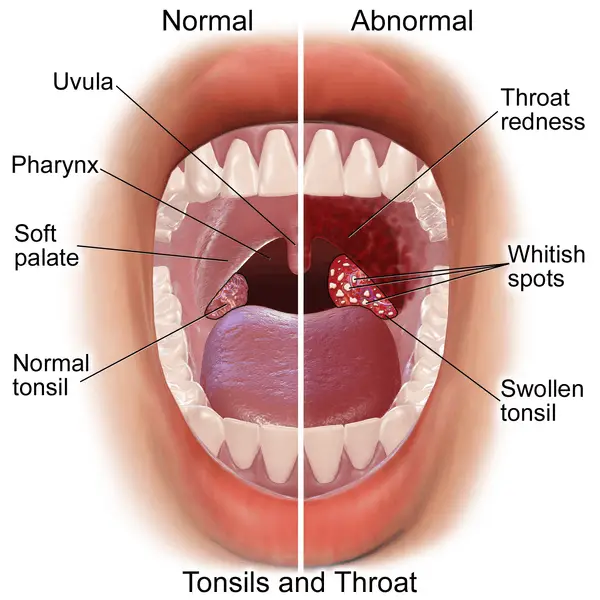
I have had these in the past, and let me tell you they are a pain in the B-hind. A tonsil stone is a hard mass that is a collection of bacteria and food debris that gets trapped and forms in the crevices of the tonsils.
For people like me who have a frequent history of strep throat, it can cause the tonsils to form indents/crypts on the surface. These areas act as a catch basin for food debris and bacteria.
Dirty tongue
The tongue is one of the strongest muscles in our body, and it’s constantly working! Even though it is extremely helpful to us, it can also be the cause of bad breath.
Read now: How Often Should You Clean Your Tongue?
For whatever reason, it is often overlooked and not cleaned as often as it should be. Having a dirty tongue can contribute to bad breath.
Imagine your tongue like a nice shaggy rug, and how much stuff could get caught in it! Yuck!
How can you improve your breath…
Floss
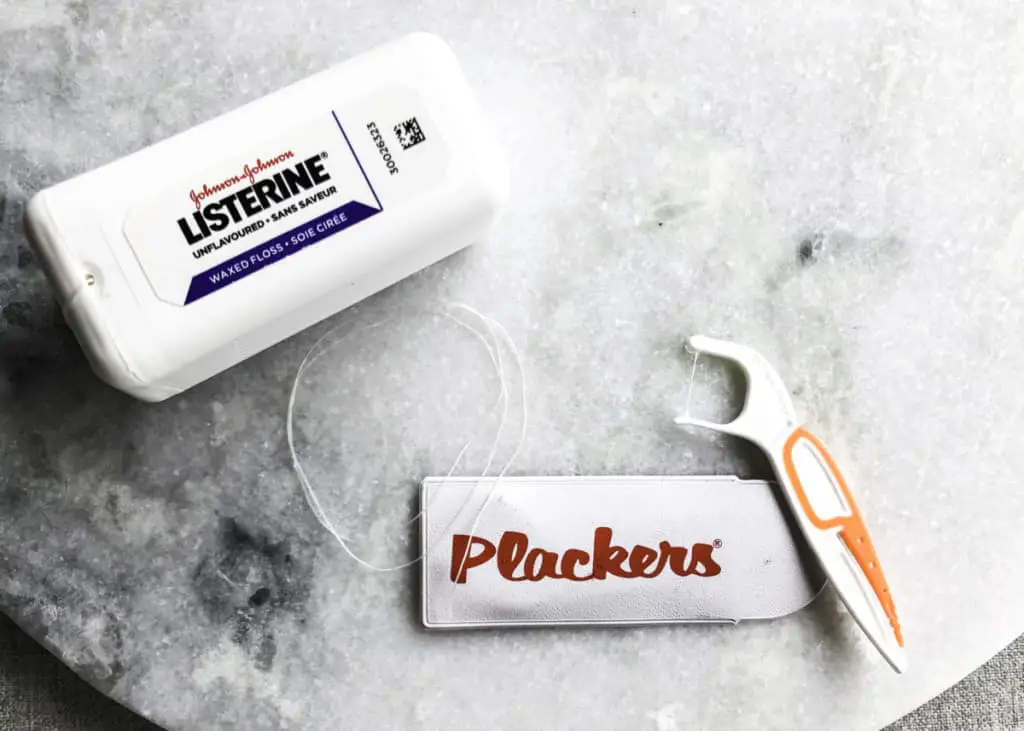
There comes the famous F word again. Floss.
Most of the time, bad breath can also come from food that is essentially rotting and breaking down in between your teeth. Gross, isn’t it.
Side story, I always ask my patients how often they are flossing, and a very popular answer is “when something is stuck between my teeth” or, “I do it when I feel like it needs to be done“. And this is about once a week or two.
The issue with flossing when you feel something is stuck is that it should be done a lot more often and at the bare minimum every 2 days.
There are so many little bacteria floating around our mouth looking for a new dark home between the teeth and under the gumline. That if not flossed out, will continue to multiply and produce volatile sulphur compounds that cause bad breath (and not to mention the potential for gum disease).
Brushing/scraping your tongue.
Imagine your tongue like a carpet. How much stuff is really on it and getting embedded between the papillae that contain the taste buds.
No mouthwash, no toothpaste, and no “miracle” breath freshener will ever work. Period.
Read now: Should You Brush or Scrape Your Tongue? Which is better?
You have to treat the problem at the source! You can’t just spray your filled rotting garbage can and expect the garbage to go away. I know that can sound harsh, but it’s reality, and I am a huge believer in telling people the truth and not trying to sell my patients on these fresh breath remedies.
See your dental professional and have regular hygiene cleanings
The best thing to do is to have an exam by your dental professional. They can examine your mouth in person and give you specific recommendations that are specifically tailored to you.
When you are at the dental office, they will probably want to take some diagnostic x-rays to see underneath the gumline and inspect the bone health. They should also do a thorough gum exam and discuss it with you. This is done by using a very small probe that has mm increments on them and you can see an example of the probe in the picture below.
Read now: Dental Hygiene: Are X-Rays Needed for Teeth Cleaning?
As you can see in the picture below, the probe is measuring how much gum tissue has been lost (recession), the black bands on the periodontal probe represent 3 mm increments. A complete gum exam measures the space between the gum and the tooth to check where the bone level is, recession/root exposure is also measured, along with any area of bleeding and tooth mobility.
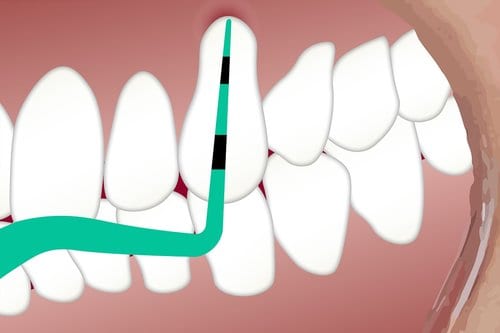
If there are deeper pockets above 3 mm (1-3 mm is considered a good cleanable/healthy pocket), for example, 7 mm, there is no way you can keep that deep pocket completely clean at home. And the bacteria will fester and cause bad breath in the deep pocket.
Flossing your teeth may only get 3 mm under the gums and brushing 1-2 mm. That’s where us dental hygienists come along to do that work for you, to clean the deeper pockets above 4 mm.
Read now: How Dental Hygienists Clean Your Teeth
If you have active gum disease, not only does it cause bad breath, but eventually it will result in bone and gum tissue loss and loose teeth.
How can you strengthen a loose tooth?
It is extremely important to note that you cannot grow bone back around teeth that have lost bone, and you cannot grow gum tissue back. Prevention is key. But having a healthy mouth can make the tissues tight up around the teeth and slow down the progression of gum disease.
Keep it clean
Keeping the teeth as clean as you can with brushing and flossing is imperative to improve the health of the tissues around the teeth. The more you keep your mouth clean, the fewer bacteria there will be to cause inflammation, which leads to the ligaments around the teeth to loosen, and the gum tissue to become flabby and puffy around the tooth.
Even if a person’s home oral hygiene is really good, it may not be enough to tackle the inflammation under the gumline. Like I mentioned earlier in this post, having frequent dental hygiene cleaning appointments will help to maintain your oral health.
Consult a periodontist
If regular home care is not enough to reduce the chronic inflammation, and regular hygiene cleanings are not helping either, consulting a periodontist (a dentist that is specialized in gum disease and fighting oral inflammation) may be right for you.
Having a consultation is so important because it is tailored to the person directly, and is the best form of advice you can get. When you see a periodontist, they will assess your specific concerns, and lay out your options to the road of good oral health,
Salt water rinses
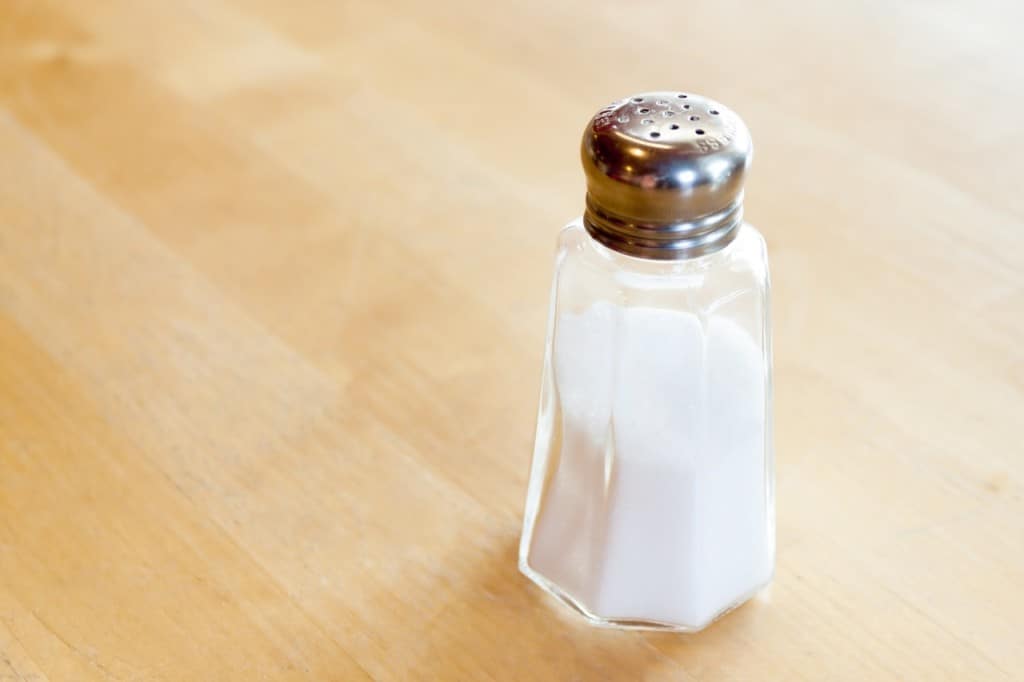
Salt water rinses will help to cleanse and heal the tissues in the mouth. It will not work under the gums but can provide some therapeutic benefit.
You don’t want to do salt water rinses too often as they can start to pit the surface of the enamel with prolonged use, and they are also not suitable for individuals on a salt-restricted diet.
Read now: Salt Water Mouth Rinse Recipe
Splinting
If you have generalized gum disease and there is advanced bone loss, sometimes a dentist will place a splint on the teeth to hold them together as one unit. A splint will prevent the teeth from moving too much, which can actually cause more bone loss.
The periodontal splint is most commonly put on the inside of the lower front teeth to hold the bottom front teeth in place, as they are the smallest teeth with the smallest roots.
I hope you have a great day,
Holly 🙂
